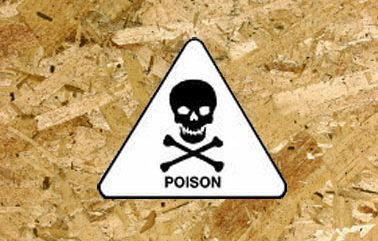Customers shopping for custom kitchen cabinets may be choosing the cheapest option at the local big box store, or they may be choosing cabinets at the other end of the price spectrum, which are marketed as “high end.” With only a few exceptions, both of these types of cabinets will be constructed of materials which are illegal in many parts of the world, due to the presence of high levels of formaldehyde, now recognized as a significant indoor pollutant.
In 2004 the International Agency for the Research on Cancer, a division of the World Health Organization, classified formaldehyde as a carcinogen, a conclusion shared by the Environmental Protection Agency. In September 2007, formaldehyde use as a preservative and in many other applications, was completely banned in Europe, and a strict standard- known as the E1 standard- was set for its presence in building materials. The European standard for formaldehyde emission from building materials is .14ppm (parts per million.) Beginning January 1st 2009 the state of California’s Air Resource Board (CARB) will institute new state standards for allowable emissions from composite wood products which will be on a par with the toughest international standards. As California’s economy is the 5th largest in the world, the upcoming standards will soon force the rest of the domestic industry to comply with these standards.
Plywood emissions vary greatly. Chinese plywood has been shown to have among the highest levels of formaldehyde emissions. An L.A. Times article (10/8/2006) stated that half a billion dollars of plywood was imported from China in 2005. One product from Home Depot tested at 100x the allowable levels in Japan and 30x the allowable levels in Europe. But for most people shopping for cabinets, this issue will never be raised. And whether they end up buying the cheapest or most expensive cabinets, the wood products used will most likely contain high levels of known harmful chemicals that will soon be banned in the U.S.
Plywood by its nature is not necessarily a low-quality product. Examples of plywood construction built by the ancient Egyptians still exist intact. Colombia Forest Products has developed a soy-based (formaldeyde-free) adhesive used in plywood manufacture, and other companies are following suit. Unlike most factory-built kitchens, JCrytzerWoodworking custom kitchens and cabinets contain no particle board or MDF (medium density fiberboard.) I offer only formaldehyde-free cabinets made of sustainaly harvested solid wood, and the highest quality plywood, where applicable.


Recent Comments